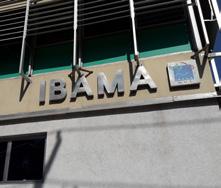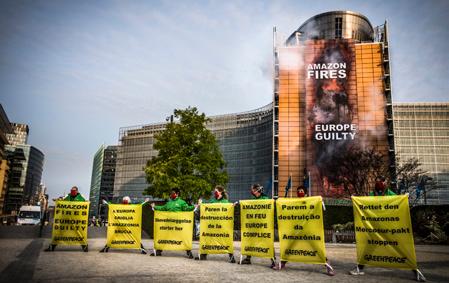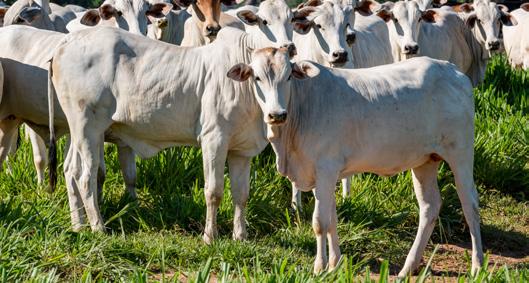
6 minute read
HIGH-RISK REGIMES – HOW THE BOLSONaRO GOVERNMENT HaS FaNNED THE FLaMES
HIGH-RISK REGIMES
– HOW THE BOLSONaRO GOVERNMENT HaS FaNNED THE FLaMES
The government of President Jair Bolsonaro has reduced the number of agents undertaking inspections in the Amazon. This reduction in oversight has been linked not only to increased deforestation rates but also to increased risk of labour crimes.160 The Bolsonaro government appears to see the current chaos of the global pandemic as an opportunity to further strip away communities’ rights and such protection as the forest has.161 Moreover, Indigenous communities – who are particularly at risk from Covid-19 due to their culture of community living and limited access to health care – are at risk of being made yet more vulnerable to the disease by exposure to smoke from the fires that ranchers set on a massive scale to clear newly felled forest.162
Satellite data reveal that between 1 January and 31 October 2020 there were more fire hotspots in the Pantanal than during the previous four years combined over the same period.163 Nevertheless, Brazil’s Institute of the Environment and Renewable Natural Resources (Instituto Brasileiro do Meio Ambiente e dos Recursos Naturais Renováveis, IBAMA) reportedly imposed barely half as many fines for illegal deforestation and fire-setting across the states of Mato Grosso and Mato Grosso do Sul between 1 January and 14 September 2020 as it did in the equivalent period of 2019, reflecting a reduction in enforcement activity in the field that one official says has led to a sense of impunity.164 According to this and other current and former IBAMA officials (including a former president of the institute) interviewed by BBC News Brasil, while the coronavirus pandemic played a role, the reduction in enforcement efforts was largely due to other factors – including massive staff cuts,165 federal government appointments of managers with no relevant experience (sometimes replacing staff who had been achieving concrete results), needlessly cumbersome and obstructive new procedures and computer systems, and interference by the military.166
‘Pass the cattle’ is the title of a January 2021 report published by the coalition Observatório do Clima. Its cover features an image of the Minister of the Environment Ricardo Salles, who made infamous the idiomatic phrase, which refers to pushing a large volume of things through with minimal scrutiny. In an April 2020 ministerial meeting whose minutes were later made public by a decision of the Supreme Court, Salles recommended wholesale deregulation of environmental and other rules while the media were occupied by the Covid-19 pandemic. Since the beginning of the Bolsonaro administration, Salles has systematically worked to dismantle environmental protection, slashed the budget and staffing of the environmental regulatory agency IBAMA and transferred powers from the Ministry of the Environment.
This last factor is key: since Bolsonaro came to power the federal government has been gradually transferring to the military responsibilities for monitoring and combating illegal deforestation and fire use that historically belonged to civilian agencies, including IBAMA, ICMBio and FUNAI.167 The government has even recently announced that INPE is to be stripped of its three-decades-old responsibility for satellite monitoring of deforestation and fires).168 As well as
© Shutterstock
25 September 2020, São Paulo: Climate protests (Ato Global pelo Clima) in front of the IBAMA offices with banners against the fires in the Pantanal and President Bolsonaro.


© Shutterstock
9 July 2019, Brasília: Environment Minister Ricardo Salles and President Jair Bolsonaro speak to the press after meeting at the ministry. ©Cruz/ Agência Brasil

contributing to a serious weakening of enforcement efforts, this process has been interpreted as a heavyhanded attempt to end transparency, making it easier for the authorities to assist forest-destroying industries – eg by building new roads and bridges in the Amazon to open up the forest to exploitation – while claiming to defend the environment.169
The task of extinguishing fires in the Pantanal still falls mainly to IBAMA-coordinated fire brigades, a large proportion of whose members are Indigenous and seasonally hired. One Indigenous representative interviewed by the investigative news agency Pública emphasised the pressing need for firefighter numbers to be increased. However, a fire service representative explained that even though meteorological monitoring made a severe 2020 fire season predictable, a twomonth delay in the hiring process meant that early prevention efforts were hampered by a lack of workers.170 In addition to this inexplicable delay, the federal government reportedly decided to cut the 2020 budget for brigadiers by 58% compared with 2019, which reduced the number of staff that could be taken on.171
According to one environmental academic, ‘What we have is authorities that question numbers, question the extent of the fires, question the capacity of satellites to monitor and detect … this ends up directly encouraging those who commit (environmental) crimes.’172 The former IBAMA president interviewed by BBC News Brasil also blamed statements from President Bolsonaro and other government figures for undermining the work of IBAMA’s inspectors by suggesting that they act with excessive rigour.173 Bolsonaro has even attempted, without evidence, to blame the fires on Indigenous communities174 – but satellite images show that the fires that devastated at least one Indigenous reserve in the Pantanal, Baiá dos Guató, began outside its borders.175
Government figures including Environment Minister Ricardo Salles and Agriculture Minister Tereza Cristina, as well as President Bolsonaro himself, have also claimed that the Pantanal fires could be combated by grazing land with cattle to ensure that grass is kept short, depriving fires of fuel.176 But this ‘solution’ seems to be no more than an opportunistic way of encouraging further expansion of cattle ranching, which – given that many wildfires begin as fires lit to ‘refresh’ exhausted pasture or to clear other vegetation types (such as felled forest or savannah) for pasture and then burn out of control177 – seems far more likely to exacerbate the problem.
Despite the recent increase in fires in the Amazon and the Pantanal, it is not only funding for hiring personnel that has been reduced under Bolsonaro’s government. According to Brazilian NGO Inesc, compared to 2019 – the last budget authorised by Bolsonaro’s predecessor – 2020’s budget reduced the amounts available for discretionary spending by over 30% for IBAMA and by nearly 33% both for ICMBio, and for direct administration of the Ministry of the Environment (Ministério do Meio Ambiente, MMA).178 The Brazilian Climate Observatory (Observatório do Clima), a network of 37 civil society groups, warns that further severe budget cuts would further compromise the country’s ability to combat deforestation and fires.179
Under pressure from Environment Minister Ricardo Salles to reduce spending, in August 2020 IBAMA decided to cut the number of helicopters it rents to monitor deforestation and fires in the Pantanal and the Amazon – an area covering some 500 million ha – from six to four. The decision was reportedly made over the protests of the head of IBAMA’s Air Operations Centre, who warned of the effects on operational capacity and was subsequently removed from his post. Retired Air Force commander Julio Cesar Basile, who was responsible for creating the agency’s helicopter division in 2000, described it as ‘an absurd and unjustifiable irresponsibility. … If it is not ignorance, it is sabotage.’180
11 September 2020, Brussels: Activists scale the European Commission headquarters, calling attention to the role of European consumption in driving forest destruction. © Johanna de Tessières/Greenpeace

21 August 2020, Trans-Pantanal road, 17°11’27.498” S 56°55’32.712” W: Firefighters work to control a fire burning in a wetland forest area on a private property. © Maria Magdalena Arréllaga









